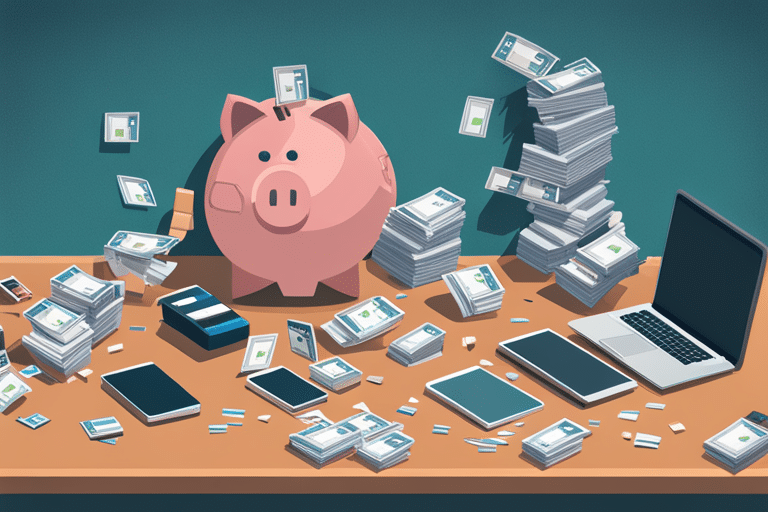Are you tiptoeing on a financial tightrope, one wrong step away from plunging into the abyss of unmanageable debt? Watch out for these warning signs that could be signaling your impending doom:
- Overspending on non-essential items
- Relying too heavily on credit cards
- Turning a blind eye to those pesky bills
It’s like balancing on a shaky ladder while juggling flaming torches – not exactly the skill set you were hoping for.
But fear not! This article will guide you towards financial mastery and help you dodge that debt disaster.
Key Takeaways
- Overspending and impulse buying can lead to piling up bills and empty bank accounts.
- Relying heavily on credit cards and loans can result in a constant struggle to make ends meet.
- Maxing out credit cards and poor credit management can negatively impact credit scores and financial stability.
- Increasing debt load and neglecting future financial security can lead to a cycle of borrowing and financial struggles.
Overspending on Non-Essential Items

If you’re constantly splurging on unnecessary purchases, you might be headed towards unmanageable debt. I mean, who can resist those shiny new gadgets or that trendy pair of shoes? But let’s face it, my friend, your budgeting techniques need a little tune-up.
Impulse buying consequences can be pretty harsh, especially when the bills start piling up and your bank account is looking emptier than a deserted island.
You see, mastering the art of budgeting is like navigating through a maze. You need to have a plan and stick to it. It’s all about setting limits and prioritizing your expenses. Sure, treating yourself every now and then is important for maintaining sanity in this crazy world, but don’t let it become a habit.
Now, I’m not saying you should never indulge in guilty pleasures or deny yourself the occasional splurge. Life’s too short for that! But if every trip to the mall leaves your wallet gasping for air and your credit card crying out for mercy, it might be time to reassess your spending habits.
Relying on Credit Cards for Everyday Expenses

Relying on credit cards for everyday expenses can quickly lead to financial trouble. It’s easy to whip out that shiny piece of plastic and swipe away, but before you know it, those impulse buys start piling up and your credit card utilization shoots through the roof. And trust me, my friend, that’s not a fun place to be.
Picture this: on one side of the table, you have your income – let’s call it “The Money Maker.” On the other side of the table, you have your expenses – we’ll call them “The Money Takers.” Now imagine those expenses are constantly outweighing your income because you’re swiping that credit card left and right without thinking twice. Uh-oh, someone needs a reality check!
Let me break it down for you in this handy-dandy table:
| Income (The Money Maker) | Expenses (The Money Takers) |
|---|---|
| Your paycheck | Rent |
| Side hustle money | Groceries |
| Birthday cash | Dining out |
See how quickly those expenses add up? And when you rely on credit cards for everything, it’s like a never-ending cycle of debt. So take control of your finances, my friend. Put down that credit card and start making smarter choices. Your future self will thank you!
Ignoring or Avoiding Bills and Financial Statements
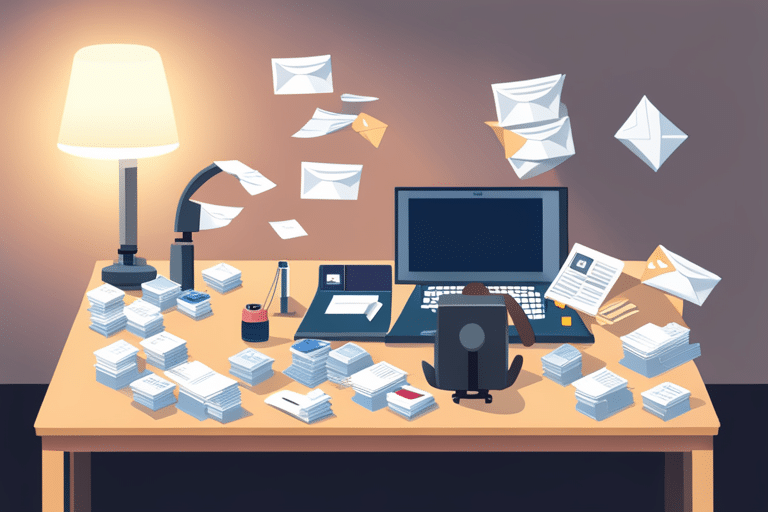
Ignoring or avoiding bills and financial statements is a surefire way to create a mountain of debt that will only become more overwhelming over time. But fear not, dear reader! With the right budgeting strategies and a little financial education, you can conquer this daunting task and take control of your finances.
So grab your cape and let’s dive into the world of responsible money management!
-
Face the Music: Ignoring bills won’t make them disappear (unless you have some secret superpower we don’t know about!). Open those envelopes, read those emails, and face your financial reality head-on.
-
Make Friends with Excel: A budgeting superhero’s best friend is a trusty spreadsheet. Create a monthly budget that includes all your income and expenses, giving each category its own superpower (or in this case, dollar amount).
-
Find Your Kryptonite: Identify any unnecessary spending habits that could be draining your funds faster than Superman can fly. Ditch those pricey lattes or expensive gadgets for more affordable alternatives, so you can save up for something truly extraordinary.
Borrowing Money to Pay off Existing Debts
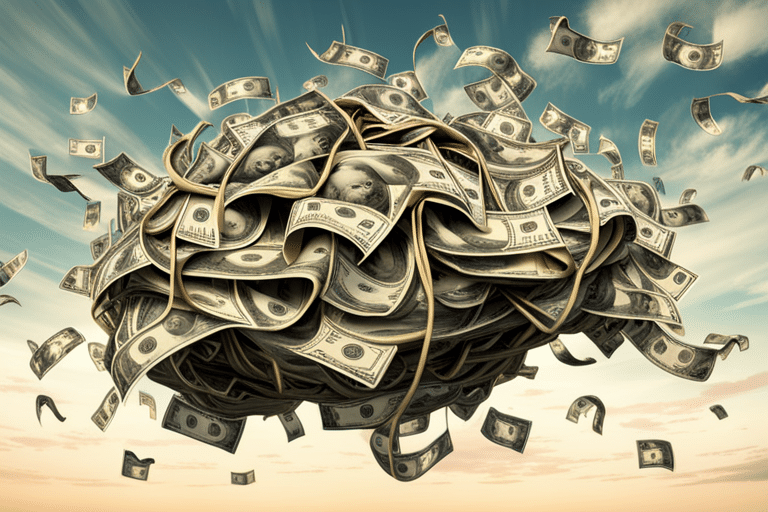
So, you’ve found yourself in a bit of a financial pickle, huh? Well, let’s talk about how borrowing money to pay off existing debts might not be the wisest move.
You see, my friend, this can lead to a never-ending cycle of debt that just keeps on perpetuating itself. And trust me when I say that being financially dependent on borrowed funds is like being trapped in quicksand – the more you struggle, the deeper you sink!
Debt Cycle Perpetuation
If you keep making minimum payments and relying on credit cards to cover your expenses, you’ll only perpetuate the cycle of debt. It’s time to break free from this vicious cycle and take control of your financial situation.
Here are three debt consolidation options and debt management strategies that can help you get back on track:
-
Debt Consolidation Loan: Consider taking out a loan to pay off all your high-interest debts. This way, you’ll have one monthly payment with a lower interest rate, making it easier to manage your finances.
-
Balance Transfer: Transfer your credit card balances to a card with a low or 0% introductory APR. This will give you some breathing room to pay off your debts without accumulating more interest.
-
Debt Management Plan: Work with a reputable credit counseling agency that can negotiate lower interest rates and consolidate your debts into one affordable monthly payment.
By implementing these debt consolidation options and debt management strategies, you’ll be able to break the cycle of debt and start working towards achieving financial freedom.
Now let’s explore the risks associated with financial dependency…
Financial Dependency Risks
Relying heavily on credit cards and loans can lead to a dangerous cycle of financial dependency.
Picture this: you’re standing at the edge of a deep, dark hole with no ladder in sight. That’s what it feels like when you’re trapped in the clutches of debt. But fear not! There is a way out.
Achieving financial independence might seem like an elusive dream, but with proper budget planning, it can become your reality. Imagine being able to make choices based on what you truly want, rather than what your bank account allows.
It’s time to take control of your finances and break free from the chains that bind you. Start by creating a realistic budget that aligns with your goals and stick to it religiously. Remember, financial independence is within reach if you are willing to put in the effort and make smart choices along the way!
Constantly Living Paycheck to Paycheck

Hey there, money master!
Let’s talk about financial instability and the stress it brings.
Picture this: you’re living paycheck to paycheck, constantly on edge, wondering if your bank account will survive until the next payday. It’s like walking a tightrope without a safety net.
And speaking of safety nets, let’s not forget about the lack of emergency savings – those unexpected expenses can really throw a wrench in your budgeting plans!
Financial Instability and Stress
Feeling overwhelmed by your financial situation and constantly stressed about money can be signs of spiraling into unmanageable debt. But fear not, my financially savvy friend! Here are three strategies to help you regain control and reduce that pesky financial stress:
-
Take care of your mental health: Money woes can take a toll on your well-being, so it’s important to prioritize self-care. Engage in activities that bring you joy, practice mindfulness or meditation, and seek support from loved ones or professionals if needed.
-
Create a budget and stick to it: A solid financial plan is like a compass guiding you towards stability. Track your income and expenses, set realistic goals, and make adjustments as necessary. Remember, every dollar counts!
-
Seek professional guidance: Sometimes we all need a little extra help navigating the choppy waters of personal finance. Consider consulting with a financial advisor who can provide expert advice tailored to your specific circumstances.
By implementing these strategies, you’ll be well on your way to reducing financial stress and gaining control over your monetary destiny!
Now let’s dive into another red flag for potential debt trouble: the lack of emergency savings…
Lack of Emergency Savings
Now that we’ve covered the stress-inducing topic of financial instability, let’s move on to something a bit more positive: the importance of budgeting and saving for emergencies.
Picture this: you’re cruising through life, enjoying your daily dose of avocado toast, when suddenly disaster strikes. Your beloved furry friend needs an unexpected trip to the vet, or your trusty car decides it’s time for a major breakdown. Without an emergency fund to fall back on, you might find yourself knee-deep in debt quicker than you can say ‘latte.’
That’s where budgeting and saving come in handy! By setting aside a little moolah each month, you can build up a safety net for those inevitable surprises life throws our way. So get creative with your strategies – whether it’s cutting back on takeout or scoring some extra cash from selling those old Beanie Babies (they could be worth a fortune!), every penny counts towards building that emergency fund.
Trust me, future you will thank present you for being financially savvy and prepared!
Receiving Frequent Calls From Creditors or Collection Agencies
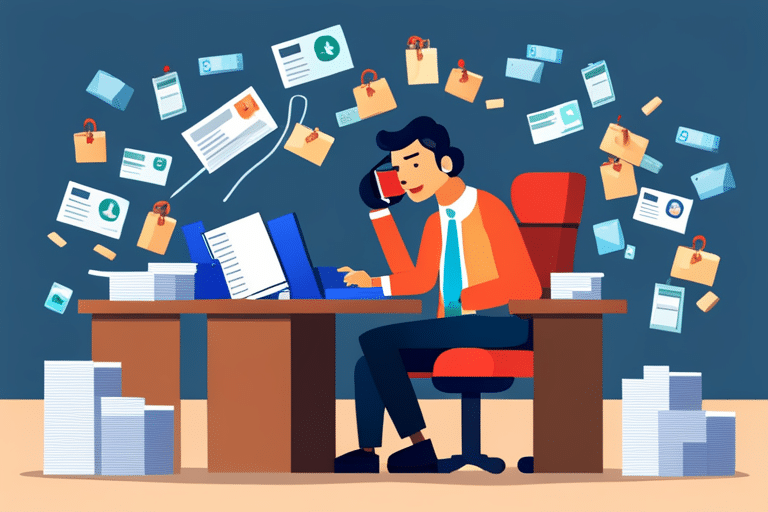
If you’re constantly getting calls from creditors or collection agencies, it could be a sign that your debt is becoming unmanageable. But fear not! We’ve got some tips to help you navigate the treacherous waters of dealing with aggressive debt collectors and minimize the impact of debt on your mental health.
-
Stay calm and collected: Remember, these collectors are just doing their job. Take a deep breath, put on your best poker face, and deal with them like a boss.
-
Know your rights: Educate yourself about the Fair Debt Collection Practices Act (FDCPA) which outlines what debt collectors can and cannot do. Knowing your rights will give you the upper hand in these interactions.
-
Seek professional help: If the calls become overwhelming or you feel like you’re drowning in debt, don’t hesitate to reach out to a credit counseling agency or a financial advisor. They have the expertise to guide you through this challenging time.
Using Payday Loans or Cash Advances to Cover Bills

Using payday loans or cash advances to cover bills can lead to a cycle of debt that is difficult to break. But fear not, my financially savvy friend! There are alternatives to these quick fixes that won’t leave you drowning in interest rates higher than Mount Everest.
Let’s explore some options, shall we?
First off, have you considered reaching out to your creditors directly? They might be willing to work with you and create a payment plan that fits your budget. It never hurts to ask!
Another alternative is seeking help from local non-profit organizations or credit counseling agencies. These folks are like financial superheroes who can guide you through the maze of debt and offer sound advice on managing your money.
Now, let’s talk about the impact of those sky-high interest rates on cash advances. Picture this: You borrow $500 and end up paying back $750 because of the exorbitant interest rates. Ouch! That’s a lot of hard-earned dough going down the drain. So before resorting to payday loans or cash advances, make sure you weigh the pros and cons and consider if there’s another way out.
Maxing Out Credit Cards or Reaching Credit Limits

Reaching the credit limit on your cards can lead to financial stress and difficulty in managing your debt. But hey, don’t worry! We’re here to help you navigate through this tricky situation with a touch of wit and imagination. So, put on your thinking cap and let’s dive into the top warning signs that you might be spiraling into unmanageable debt by maxing out those credit cards!
-
Impulsive spending habits: Do you find yourself swiping that card for every little thing? From that fancy latte to the latest gadget, impulsive spending can quickly drain your available credit. It’s time to take a step back and assess if these purchases are really necessary.
-
Poor credit utilization ratio: Have you ever heard of this fancy term? Well, it’s all about how much of your available credit you’re actually using. When you max out your cards, it sends a signal to lenders that you may not be handling your finances wisely.
-
Feeling overwhelmed or stressed about finances: If reaching your credit limits is causing sleepless nights or constant worrying about money, then it’s time to take action. Ignoring the problem won’t make it go away, so let’s tackle it head-on.
Feeling Overwhelmed or Stressed About Finances
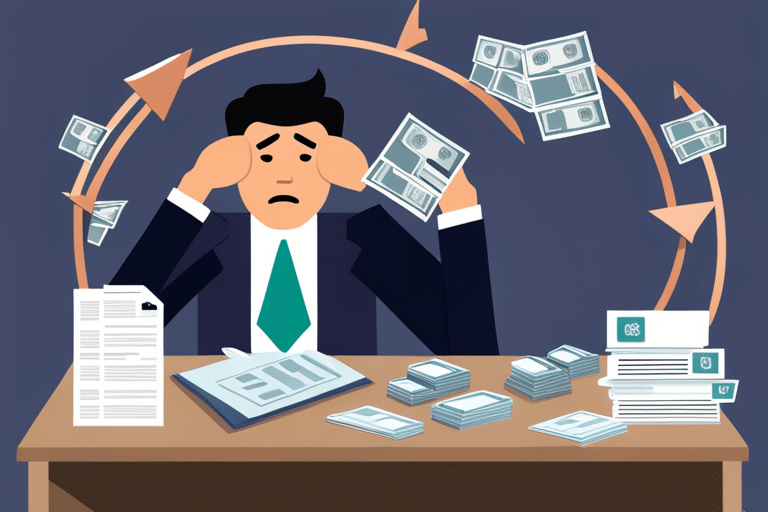
Feeling overwhelmed or stressed about finances can have a significant impact on your overall well-being and quality of life. We’ve all been there, my friend, when the bills seem to pile up like Mount Everest and you start questioning if money really does grow on trees. But fear not! There are financial planning strategies that can help you navigate these choppy waters and regain control of your financial ship.
First things first, take a deep breath and remember that you’re not alone in this journey. Many people have faced similar challenges and come out stronger on the other side. One strategy is to create a budget that works for you. This might involve cutting back on some non-essential expenses (bye-bye daily latte), but trust me, it’ll be worth it.
Another important step is to seek professional help if needed. Just like you would call a plumber for a leaky faucet, sometimes we need to call in the experts when it comes to our money matters. Financial advisors can provide guidance tailored specifically to your situation and help you develop a plan that will put you back on track.
Frequently Asked Questions
How Can I Effectively Budget and Control My Spending on Non-Essential Items?
To effectively budget and control your spending on non-essential items, try these savvy tricks: track expenses, set limits, prioritize needs over wants. Remember, a little restraint now can lead to big financial freedom later!
What Are Some Alternative Ways to Cover Everyday Expenses Without Relying on Credit Cards?
Looking to cover everyday expenses without relying on credit cards? Get creative with your budgeting techniques! Explore alternative ways to generate income, like freelancing or selling handmade crafts. You’ve got this!
How Can I Improve My Financial Organization and Ensure That I Don’t Ignore or Avoid Bills and Financial Statements?
To improve financial organization, start by setting up a bill payment system and creating a budget. Don’t ignore or avoid bills and statements! Stay on top of them to avoid any surprises.
What Are Some Strategies to Pay off Existing Debts Without Resorting to Borrowing More Money?
Paying off debts without borrowing more money is like climbing a mountain without a safety net. But fear not! Use debt consolidation options and smart repayment strategies to conquer that financial peak.
How Can I Break the Cycle of Living Paycheck to Paycheck and Start Saving for the Future?
Break free from the paycheck to paycheck cycle and start saving for the future! Explore clever saving strategies and investment opportunities that will make your money work harder for you. You’ve got this!
Conclusion
Congratulations! You’ve reached the end of our little journey through the warning signs of unmanageable debt. Hopefully, you’re not feeling like a drowning cat in a sea of bills or a tightrope walker without a safety net.
Remember, when it comes to your finances, it’s important to stay on top of things and avoid those pesky creditors buzzing around like persistent mosquitoes. So, take control, keep an eye on those credit limits, and let the stress melt away like ice cream on a sunny day.
Stay financially savvy, my friend!

